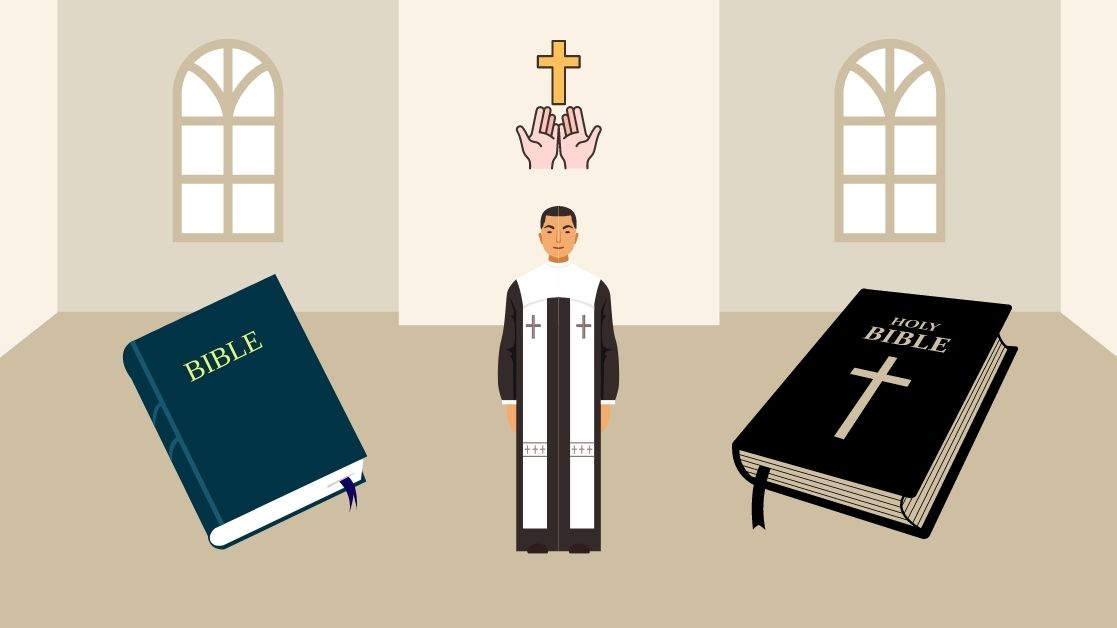The NRSV-CE (New Revised Standard Version, Catholic Edition) Bible is a Bible translation sanctioned by the Catholic Church. This version is the most commonly used Bible in Catholic Churches in Canada.
The NRSV-CE encompasses the complete collection of 73 books found in the Catholic Bible, including the deuterocanonical books arranged in the customary order followed by Catholics.
The Importance of Translation
Understanding Bible translations can be challenging for most Catholics seeking the most suitable Bible option. Embracing the call of the Second Vatican Council to engage with Scripture more faithfully demands a translation that is not only accessible and readable but also faithful to the original languages of the Bible.
The selection of a Bible translation is contingent upon one’s specific objectives for reading the Bible. There are numerous English translations of the Bible, and none of them can be considered flawless.
The expression ‘lost in translation’ applies to the Bible just as it does to any form of communication. When we translate from the original language into another, the full subtlety of meaning or significance is inevitably compromised. Translators bring their own limitations and preconceived understandings.
Moreover, it’s essential to note that Catholic Bibles encompass seven additional books in the Old Testament that are absent in both Protestant Bibles and the Jewish Scriptures.
Catholics tend to have a more relaxed approach to regular Scripture reading compared to other Christians. However, if Catholics want to change this tendency, they must not let the pressure of finding the perfect Bible translation prevent them from engaging with the Word at all. The essential step is to overcome any hesitation and simply open the Bible, regardless of the version or translation.
What is the Best Bible Version For Catholics?
According to various Catholic scholars and educators, there isn’t a singular best Bible for Catholics but multiple suitable versions. The choice often depends on the individual’s personal background in Bible reading and study and their intended use of the sacred text. Still, many pastors agree that The NRSV-CE (New Revised Standard Version, Catholic Edition) Bible is the best choice for Catholics.
The Catholic Church does not favor one specific Bible translation but allows for the use of various translations based on different purposes. The New American Bible has been selected as the official text for Mass readings in the United States. At the same time, the New Revised Standard Version is utilized for Mass in Canada, and the Jerusalem Bible is usually used for Mass in the UK and Ireland.
Catholics may find it advantageous to seek Bibles that utilize the same translation used during Mass. This alignment can be beneficial as repeating familiar passages during Mass helps reinforce them in their memory.
One can identify the phrase “Catholic Edition” on the cover to determine if a translation is approved. This designation signifies the translation’s endorsement and confirms the inclusion of all 73 books of the Catholic Bible, as opposed to the 66 books found in Protestant editions.
RELATED: Which Bible Should You Read? Choosing The Right Bible
Bottom Line
The question of which Bible Catholics use does not have a single definitive answer. Various translations are suitable for Catholics, depending on individual preferences, background, and the intended purpose of reading Scripture. While no translation is perfect, Catholics are encouraged to select translations that accurately convey the original biblical languages and offer readability.
In my opinion, Catholics should read The NRSV-CE (New Revised Standard Version, Catholic Edition) Bible.
Furthermore, aligning one’s personal Bible with the translation used in Mass can be advantageous, as the repetition of familiar passages during worship aids in reinforcing their significance and fostering a deeper connection with Scripture. Ultimately, the choice of Bible translation is personal, guided by the desire to engage with the Word of God and grow in faith and understanding.
RELATED: How Many Bible Versions Are There?




